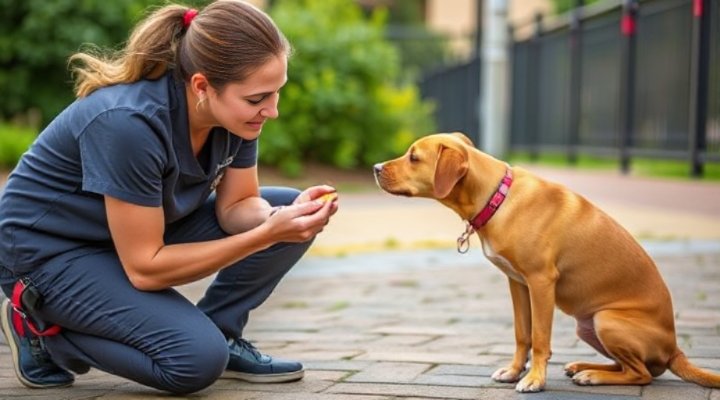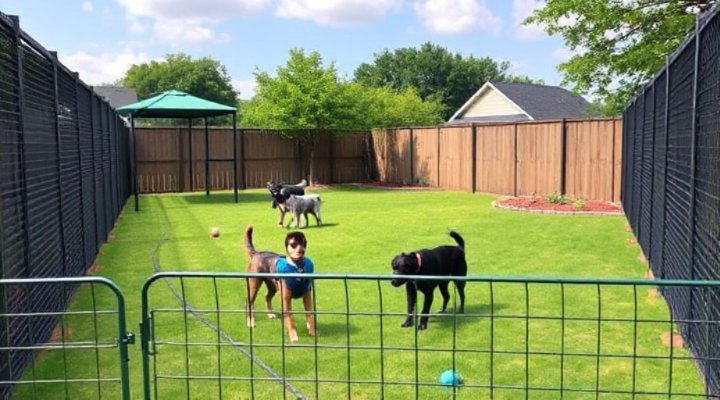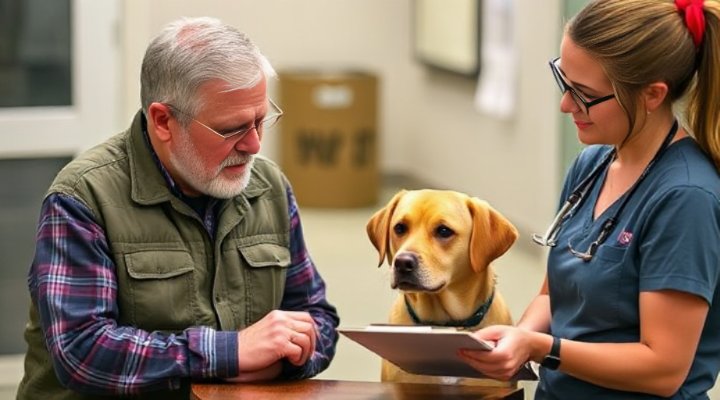Finding the right dog boarding for reactive dogs requires careful consideration and planning. Reactive dogs, those who overreact to certain stimuli like other dogs or strangers, need specialized care to ensure their boarding experience is stress-free and safe. In this guide, we’ll walk you through the steps to find the best boarding options tailored to your reactive dog’s needs.

Understanding Reactive Dogs and Their Needs
Reactive dogs exhibit behaviors like barking, lunging, or growling in response to specific triggers. These behaviors stem from fear, anxiety, or past negative experiences. Therefore, boarding facilities for reactive dogs must have staff trained in handling such behaviors and environments designed to minimize stress.
For example, a good facility will offer private spaces away from other dogs and have protocols to prevent unexpected encounters. They should also use positive reinforcement techniques to keep your dog calm and happy. If you’re unsure about your dog’s reactivity level, consider consulting a dog behavior specialist before boarding.

Key Features of a Good Reactive Dog Boarding Facility
When searching for dog boarding for reactive dogs, look for these essential features:
- Experienced Staff: The facility should have staff trained in canine behavior, especially reactivity and aggression. Ask about their qualifications and experience.
- Private Accommodations: Your dog should have a private space where they won’t see or hear other dogs, reducing potential triggers.
- Customized Care: The facility should be willing to follow your dog’s routine, including feeding schedules, exercise, and any medications.
- Low-Stress Environment: Look for facilities that use calming techniques like pheromone diffusers, soft music, or structured quiet times.
Additionally, visit the facility beforehand to assess its cleanliness, safety measures, and overall vibe. Trust your instincts—if something feels off, it’s okay to keep looking.

Questions to Ask When Evaluating Boarding Options
Before committing to a boarding facility, ask these critical questions:
- How do you handle reactive dogs during check-in and check-out?
- What’s your protocol if my dog has a reactive episode?
- Can you accommodate my dog’s specific triggers (e.g., no walks during peak hours)?
- Do you offer trial stays to see how my dog adjusts?
For more tips on managing reactive behaviors, check out our guide on dog recall training, which can help in emergency situations.

Preparing Your Reactive Dog for Boarding
Preparation can make the boarding experience smoother for your reactive dog. Here’s how to get ready:
- Practice Short Separations: Start with short stays at the facility to help your dog acclimate.
- Pack Familiar Items: Bring your dog’s bed, toys, and an unwashed shirt with your scent to comfort them.
- Provide Detailed Instructions: Write down your dog’s triggers, calming techniques, and emergency contacts.
Remember, the AVMA recommends ensuring your dog is up-to-date on vaccinations before boarding, especially in shared facilities.

Alternatives to Traditional Boarding
If traditional boarding feels too stressful, consider these alternatives:
- In-Home Pet Sitters: A sitter stays in your home, keeping your dog in a familiar environment.
- Specialized Reactive Dog Sitters: Some sitters specialize in reactive dogs and can provide one-on-one care.
- Veterinary Boarding: If your dog has severe anxiety, a vet clinic with boarding may be the safest option.
For more on managing dog anxiety, explore our article on solving dog anxiety issues.
Final Thoughts
Finding the right dog boarding for reactive dogs takes time and research, but it’s worth it to ensure your dog’s safety and comfort. By choosing a facility with experienced staff, a low-stress environment, and customized care, you can enjoy your time away knowing your dog is in good hands.
For further reading, the ASPCA offers excellent resources on dog behavior and care.
Related Keywords:
reactive dog care, safe dog boarding, boarding for aggressive dogs, dog anxiety solutions, specialized dog boarding
